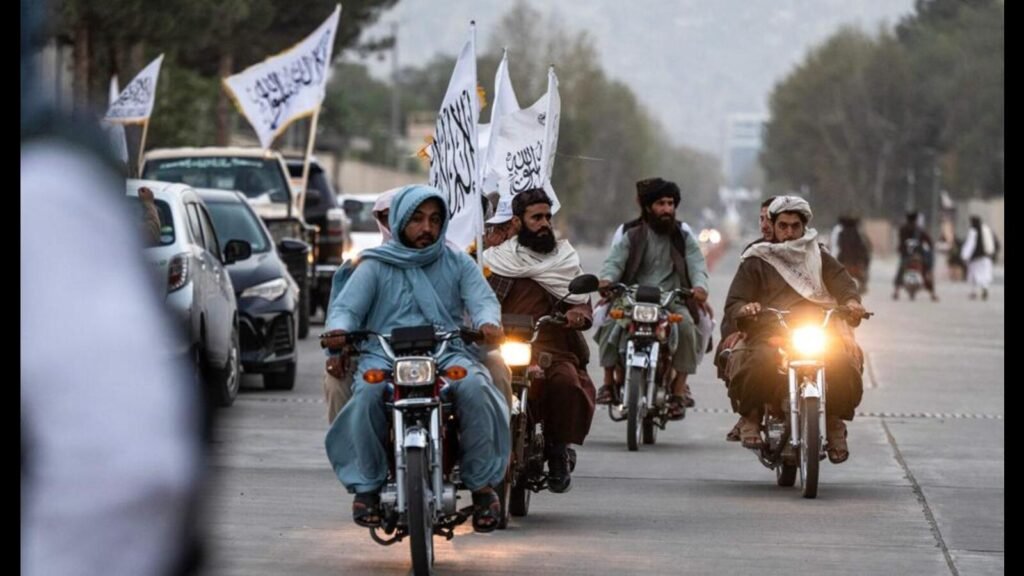
The recent visit of Afghanistan’s foreign minister, Amir Khan Muttaqi, to India has triggered a debate on whether India should formally recognize Kabul’s Taliban government, once considered synonymous with international terrorism, that came to power in 2021 through a horrific takeover.

India has had minimal diplomatic exchanges with the Taliban government so far and has not recognized the Taliban regime. (Since Muttaqi’s visit, India has reopened its embassy in Kabul). In fact, barring Russia, no other country has de jure or legally recognized the Taliban regime. International relations scholars have begun making a case for India to officially recognize the Taliban government, highlighting the strategic benefits that New Delhi would enjoy if it were to do so.
The realist geopolitical considerations aside, what is the international law on government recognition that should inform India’s actions?
Unlike State recognition, which involves recognizing an entity as a State and has clear benchmarks, the issue of government recognition is complex in international law. Once an entity is recognized as a State under international law, the question of government recognition is generally considered immaterial if the new government has been formed through legitimate means, that is, political power has changed hands peacefully.
But what if a new government in an existing State comes into existence through a coup or the use of extra-constitutional means? In that case, the issue of its recognition under international law may assume salience due to the high stakes involved. Who governs a particular State is critical to answering several pivotal questions, such as who will represent that State at the international level, who will bear its international legal obligations, including protecting the human rights of its people, and who will control its assets.
Under international law, recognition by States is not determinative of whether an entity is a government of a particular State. Nonetheless, recognition of governments is vital as it confers legitimacy on a regime in the eyes of the international community. Traditionally, the most crucial test in international law for recognizing governments is the principle of effectiveness, also known as the test of effective control.
Since the Taliban effectively controls the State of Afghanistan, its population and national institutions with permanence, and there is no other competing entity claiming to represent the State of Afghanistan, it is the legal government. As part of the effectiveness test, how the Taliban came to power is immaterial. As international lawyer Ben Saul argues, there are only two absolute bars on an entity being recognized as a government. First, if the UN Security Council has declared the illegality of a situation where there should be no recognition. Second, a government that has come into existence through the breach of jus cogens norms — the fundamental norms of international law from which no deviation is permitted — shall not be recognized. An example of this would be a government that arises as a result of the illegal use of force by a foreign State.
Taliban’s case does not fall under the first principle articulated above. However, it is arguable whether it falls under the second category. The International Court of Justice (ICJ), while rendering its Advisory Opinion on the legality of Israel’s occupation of Palestine, held that the right to self-determination constitutes a jus cogens norm. Although ICJ held this in the context of foreign occupation, if this were to be applied to Afghanistan, the Taliban regime would be found wanting because it surely does not represent the will of all the Afghan people.
Even if the Taliban regime were to escape the jus cogens test, there is arguably a strong argument against recognizing it based on what is known as the doctrine of democratic legitimacy.
According to this doctrine, recognition of a government does not depend merely on the principle of effectiveness but also on whether it is the legitimate representative of the people it claims to govern. Taliban’s brute capture of power in 2021 and the manner in which it has run its affairs is anything but democratic. Moreover, the Taliban’s appealing practice of gender discrimination, which many scholars call gender persecution or gender apartheid, is a strong reason for not conferring. de jure recognition to the Taliban regime.
It would be a grave mistake to label these concerns as merely moralistic. These are legal concerns that India’s foreign policy establishment should grapple with in case it is contemplating recognizing the Taliban regime.
One fully understands that India needs to deal with the Taliban regime due to strategic reasons. However, India should do business with the Taliban because it is Afghanistan’s government, not because it is a government that enjoys democratic legitimacy or de jure recognition. In fact, India should ask the Taliban to honor its international law obligations, including human rights, as it aspires to receive New Delhi’s de jure recognition.
Prabhash Ranjan is professor and vice dean (research), Jindal Global Law School. The views expressed are personal






